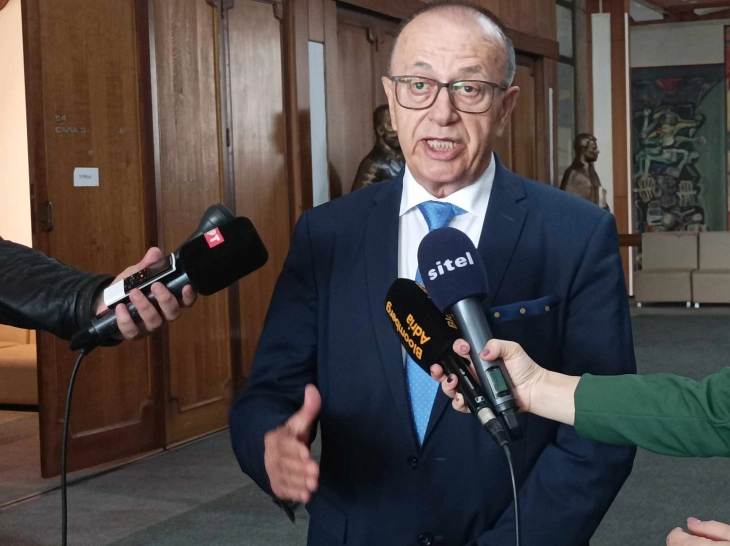Accelerating economic growth and development, resuming the EU integration process, and combating corruption are the three key priorities the new government should focus on, said academic Taki Fiti on Wednesday in Skopje.
He emphasized the need for continued reforms and called for a comprehensive effort to combat the grey economy.
Speaking to the media ahead of a scientific panel discussion on macroeconomics post the 2007-2009 recession at the Macedonian Academy of Arts and Sciences (MANU), Fiti refrained from commenting on the announced one-billion-euro loan, noting that information was still limited.
Regarding inflation, Fiti stressed the importance of coordinated monetary and fiscal policies. He pointed out that without fiscal discipline, no central bank could prevent inflation, especially with large budget deficits, significant expenditures, wage increases beyond productivity trends, major export dependence, and higher inflation compared to neighboring countries.
“We cannot maintain high price stability, macroeconomic stability, and financial stability without a disciplined fiscal policy. The new government must prioritize accelerating economic growth and development, resuming the EU integration process, and combating corruption. These are critical priorities for the new government,” Fiti stated.
He noted the poor state of the budget and the high debt, advocating for a robust fight against the grey economy to increase budget revenues and enable easier fiscal policy management, facilitating coordination with monetary policy.
Fiti identified the key challenges for the Macedonian economy as those following the 2007-2009 crisis. “The 2007-2009 crisis in the EU evolved into a debt crisis and then a euro crisis. The EU is crucial for us due to its significance for import and export and because the denar’s value is tied to the euro. The world faced a lockdown during the Covid-19 pandemic right before the energy crisis hit.”
He explained that Macedonia lost fiscal space post-2008. “Until 2007, public debt was 23% of GDP, rising to 26% over the next five to six years. Today, due to the crises, public debt exceeds 60%. The question is whether this is sustainable, and if so, what measures are needed to maintain sustainability and which fiscal rules should be applied,” Fiti said.
He urged the Fiscal Council to oversee budget spending, ensure adherence to basic budget rules—keeping debt below 60%, reducing the budget deficit to two to three percent, and achieving a normal level of indebtedness within five to six years.
The scientific discussion was organized by the Ksente Bogoev Center for Strategic Research at MANU.





Comments are closed for this post.